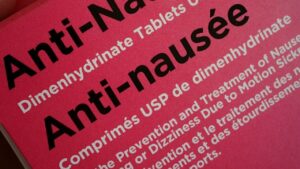Codependency is an emotional and behavioral condition that can affect a person’s ability to form healthy, fulfilling, and mutually satisfying relationships. When that relationship also involves addiction, the problems are only magnified, and the relationship can turn toxic or even dangerous. Often people with codependency have good and well-meaning intentions, but their need to care for a person can become compulsive and even defeating. Codependency in recovery can be detrimental to the wellbeing of everyone involved.
Typically, the codependent person will enable the person struggling with substance use disorder. This could be as simple as making excuses for their behavior or actually providing them the substance—such as a parent buying alcohol for a child—and rationalizing that because they are drinking at home it is not a serious problem like drinking and driving. A more extreme example might be when the person struggling with addiction has made seeking and using alcohol or drugs their main focus after a period of enablement and reacts in potentially dangerous and unpredictable ways when the codependent person attempts to intervene in any way.
Codependency in recovery is detrimental to improving addiction and relationships. A professional treatment program is recommended to repair the damage caused by codependency and addiction. Call Swift River at 888.451.5895 to learn more about our family involvement program.
Who Is Affected by Codependency?
Codependency can affect anyone who maintains a close relationship with someone dealing with substance use or mental health issues. This can be parents, siblings, friends, romantic partners, and coworkers. Initially, codependency was almost always defined in the context of chemical dependency. Mental health professionals have found that family dysfunction can also play a significant role in the development of codependency issues. When this is the case, codependency issues can seem inherent because the person was only ever taught how to seek personal acceptance from external sources. So, all in all, anyone can be impacted by codependency in their lives, whether they also face addiction, mental illness, or physical illnesses.
Common Characteristics of Codependency
Because the nature of these issues is not black-and-white, there are many symptoms to identify. It is important to note that you do not have to be experiencing all of these symptoms to qualify as codependent.
Low Self-Esteem
Feelings of inadequacy and comparing yourself to others are signs that you may have self-esteem issues. This issue may not be readily apparent, as many people have created a mask of confidence while feeling unlovable or inadequate on a subconscious level.
Poor Boundaries
Boundaries can be defined as the invisible line that separates you and your belongings from other people. Belongings can refer to physical objects such as your body, home, money, and possessions. It can also refer to intangible aspects of your personality, such as your feelings, thoughts, and needs. Some codependents have set boundaries that are weak and feel responsible for the thoughts, feelings, and actions of others. Others can be on the opposite end of that spectrum with very rigid boundaries that lead to being withdrawn and closed off. This issue very often leads to problems with intimacy. An issue that goes hand-in-hand with poor boundaries is caretaking. People suffering from codependency often want to help a loved one to the point that they ignore their own needs. Feelings of empathy and sympathy for other people are natural but become problematic when they become more important than your own wellbeing.
Obsessions
Codependency can lead to obsessive behavior as well. A person may become transfixed on other people or relationships. A codependent person may make a mistake and become obsessed with that mistake, while a mentally healthy person may learn from it and move on.
Avoidance and Denial
People struggling with codependency often have trouble facing or acknowledging their issues. They may have a mindset that shifts the blame for their issues to other people or situations. They also often deny their own feelings and, instead, transfix on the feelings or needs of others. This can also be the opposite case, where a person may insist that they are self-sufficient and don’t need help. In this case, they are denying themselves normal human feelings and emotions.
Dysfunctional Communication
Codependents may have difficulty conveying their thoughts, feelings, or needs. This may be because they form their thoughts and feelings around the thoughts and feelings of others, leading to a muddy or distorted sense of self. Along with this, a codependent person may be afraid to speak their opinions for fear of upsetting other people. These are just some of the symptoms that make up the very complicated mental struggle of codependency. So, how can you recognize these in your life?
Addressing Codependency in Recovery
In the past, family members of people dealing with addiction have been taught a number of techniques that are ultimately neither helpful nor practical.
Traditionally, the prevailing mindset is that a person struggling with addiction issues must hit “rock bottom” before they accept they need help and must change. In addition, we were taught that helping your loved one is enabling their substance use, which means you are codependent. This presents a nearly impossible scenario to reconcile.
Codependency treatment at Swift River Health places emphasis on a variety of strategies to combat enabling behaviors, such as:
- Understanding the benefits of positive communication even during difficult times.
- Using positive reinforcement to identify what strategies are working while allowing your loved one to properly experience and deal with the consequences of their actions.
- Taking real steps toward developing an awareness of what it means to take care of yourself as a priority rather than an afterthought.
Reach Out to Swift River – Massachusetts Today
At Swift River Health, we are experienced with handling problems related to addiction and relationships. Call 888.451.5895 to learn more about overcoming codependency in recovery.











